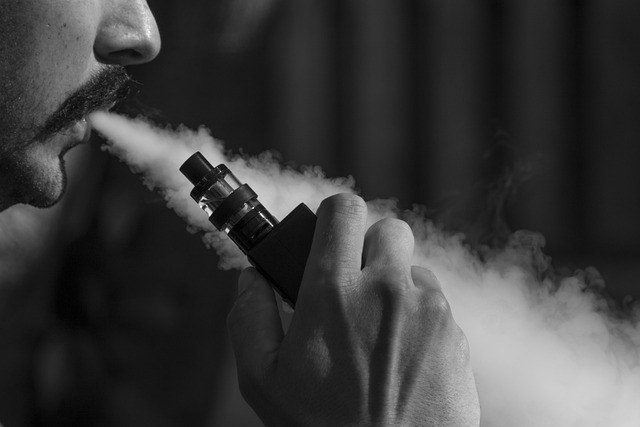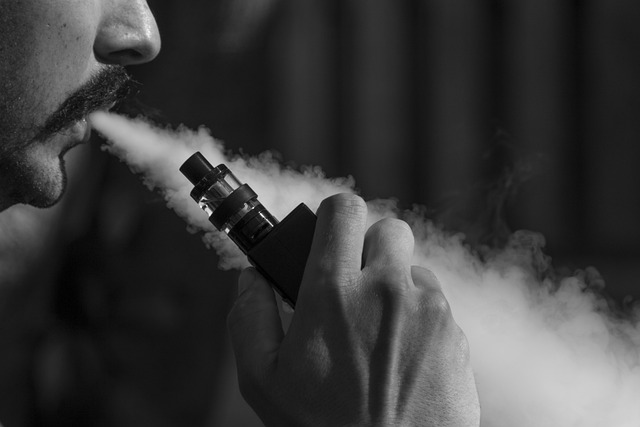What Happens If I Vape After Wisdom Teeth Removal? Answers Inside
Have you recently undergone wisdom teeth removal and find yourself craving a hit from your trusty vape device? Before you indulge in that sweet-scented vapor, it’s crucial to understand how vaping can impact your healing process. In this article, we will delve into the potential consequences of vaping after wisdom teeth removal, providing you with the knowledge you need to make an informed decision. So, sit back, relax, and let’s uncover the truth behind this common dilemma.
1. Understanding the Potential Consequences: Vaping After Wisdom Teeth Removal
After undergoing wisdom teeth removal, it is crucial to understand the potential consequences of vaping. While vaping may seem harmless, it can have adverse effects on the healing process and overall recovery. Here are some key points to consider:
- Delayed Healing: Vaping introduces harmful chemicals into your mouth, which can hinder the healing of the surgical wounds. The heat and chemicals from the vapor can cause irritation and inflammation, leading to a prolonged recovery time.
- Infection Risk: The act of vaping involves inhaling and exhaling vapor, which creates a moist environment in your mouth. This moisture can be a breeding ground for bacteria, increasing the risk of infection in the extraction sites. It is crucial to prioritize a clean and bacteria-free environment for optimal healing.
- Dry Socket: Dry socket is a common complication after wisdom teeth removal that occurs when the blood clot that forms in the extraction site gets dislodged or dissolves prematurely. Vaping, especially with nicotine-containing e-liquids, can decrease blood flow and oxygen supply to the extraction site, increasing the chances of developing dry socket.
Considering these potential consequences, it is strongly recommended to refrain from vaping after wisdom teeth removal. Your oral health and recovery should be a priority, and avoiding vaping will significantly contribute to a smooth and speedy healing process. If you need assistance in managing any nicotine cravings during this time, consult with your dentist or oral surgeon for suitable alternatives.

2. The Impact of Vaping on Healing: What Experts Say
Vaping has become increasingly popular in recent years, but what impact does it have on healing? Experts in the medical field have weighed in on this topic, shedding light on the potential effects of vaping on the healing process.
1. Delayed wound healing: Some experts have expressed concerns about the potential for vaping to impede the healing of wounds. The chemicals present in e-cigarettes, such as nicotine and formaldehyde, may have adverse effects on the body’s ability to heal. Nicotine, in particular, has been shown to constrict blood vessels, reducing the blood flow to the affected area and slowing down the healing process.
2. Increased risk of infection: Another aspect that experts have highlighted is the increased risk of infection associated with vaping. The aerosol particles produced during vaping can contain harmful substances that may compromise the body’s immune system, making it more susceptible to infections. This can be especially problematic for individuals recovering from surgery or other medical procedures, as infections can significantly hinder the healing process.

3. Complications to Avoid: Risks Associated with Vaping Post-Surgery
While vaping has gained popularity as an alternative to traditional smoking, it is important to be aware of the potential risks it can pose, especially after undergoing surgery. Here are some complications to avoid:
- Infection: Vaping introduces foreign substances into the respiratory system, which can impair the body’s ability to fight off infections. After surgery, your immune system is already weakened, and vaping further increases the risk of developing an infection at the surgical site or in the lungs.
- Delayed Healing: Nicotine, a common component in vape juice, constricts blood vessels, reducing blood flow to tissues. This can impede the healing process, as oxygen and nutrients are essential for tissue regeneration. Vaping after surgery prolongs the healing time and may lead to complications such as wound breakdown or poor scar formation.
- Pulmonary Complications: Vaping exposes the lungs to harmful chemicals and irritants, which can cause inflammation and damage to the delicate lung tissues. Post-surgery, the lungs are already vulnerable, and vaping can increase the risk of developing respiratory complications, such as pneumonia or acute respiratory distress syndrome (ARDS).
It is crucial to prioritize your health and follow your healthcare provider’s advice. Avoiding vaping after surgery can significantly reduce the chances of encountering these complications, ensuring a smoother and faster recovery process.

4. Promoting a Speedy Recovery: Guidelines for Vaping After Wisdom Teeth Extraction
After undergoing wisdom teeth extraction, it is crucial to follow certain guidelines to ensure a speedy recovery. Vaping can be an enjoyable activity for many, but it is important to be cautious during the healing process. Here are some essential guidelines to promote a smooth recovery while continuing to enjoy your vaping experience:
- Wait for the appropriate time: It is recommended to refrain from vaping for at least 24-48 hours after the extraction procedure. This allows the blood clot to form and promotes proper healing. Avoiding vaping during this initial period reduces the risk of dislodging the blood clot, which can lead to a painful condition called dry socket.
- Gentle suction: When you do start vaping again, be mindful of the suction you create while inhaling. Forceful suction can disturb the surgical site and hinder the healing process. Take slow, gentle puffs to minimize any negative impact on the extraction site.
- Choose the right e-liquid: Opt for e-liquids with a lower nicotine content and avoid those with high levels of acidity or menthol. High nicotine levels can hinder the healing process, while acidic and menthol flavors may cause irritation or sensitivity at the extraction site. Selecting milder flavors will be more gentle on your healing gums.
By adhering to these guidelines, you can continue to enjoy vaping while ensuring a smooth and speedy recovery after wisdom teeth extraction. Remember, it is always best to consult with your dentist or oral surgeon for personalized advice based on your specific situation and needs.

5. Addressing Common Concerns: Frequently Asked Questions about Vaping and Wisdom Teeth Removal
When it comes to wisdom teeth removal, many patients have concerns about how vaping may affect their recovery process. Here are some frequently asked questions to address those concerns:
Q: Can I vape after getting my wisdom teeth removed?
A: It is strongly advised to avoid vaping or any form of smoking for at least 72 hours after wisdom teeth removal. The suction created while vaping can dislodge blood clots, leading to a dry socket, which can cause intense pain and delay the healing process. It is best to wait until you have fully recovered before resuming vaping.
Q: Can vaping affect the healing process?
A: Yes, vaping can potentially impede the healing process after wisdom teeth removal. The chemicals found in e-cigarettes can irritate the surgical site, increase the risk of infection, and slow down the healing of the extraction site. It is crucial to prioritize your oral health during the recovery period and abstain from vaping to ensure optimal healing.
6. Making Informed Choices: Alternatives to Vaping during the Healing Process
When it comes to healing, making informed choices is crucial. If you’re looking for alternatives to vaping during the healing process, there are several options to consider. These alternatives can provide a safer and healthier way to manage stress or cravings without the potential risks associated with vaping. Here are some alternatives worth exploring:
- Nicotine replacement therapy (NRT): NRT products such as nicotine patches, gums, lozenges, or inhalers can help reduce withdrawal symptoms and cravings. These products deliver nicotine to the body without the harmful chemicals found in vape juice.
- Meditation and relaxation techniques: Engaging in meditation, deep breathing exercises, or practicing mindfulness can be effective strategies to reduce stress and manage cravings. These techniques promote a sense of calm and can help divert your attention away from the urge to vape.
- Physical activity: Regular exercise not only improves overall health but can also provide a distraction from vaping. Engaging in activities like walking, jogging, or yoga releases endorphins, which can elevate mood and reduce nicotine cravings.
Remember, finding the right alternative may require some trial and error. What works for one person may not work for another, so it’s important to be patient and open-minded. Consulting with a healthcare professional or seeking support from a quit smoking program can also provide valuable guidance and resources to help you make an informed choice that aligns with your healing journey.
7. Conclusion: Prioritizing Your Health and Recovery after Wisdom Teeth Extraction
After undergoing wisdom teeth extraction, it is crucial to prioritize your health and recovery to ensure a smooth healing process. Here are some key considerations to keep in mind:
1. Follow post-operative instructions: Your dentist will provide you with specific guidelines to follow after the surgery. It is essential to adhere to these instructions, which may include taking prescribed medications, using ice packs to reduce swelling, and avoiding certain foods or activities that may hinder healing.
2. Maintain good oral hygiene: Keeping your mouth clean is vital during the recovery period. Gently brush your teeth and tongue with a soft-bristle toothbrush, being cautious around the surgical site. Rinse your mouth with a saltwater solution or an antimicrobial mouthwash to promote healing and prevent infection.
3. Manage pain and swelling: Some discomfort and swelling are normal after wisdom teeth extraction. Over-the-counter pain relievers, such as ibuprofen, can help alleviate the pain. Applying ice packs to the affected area for 15 minutes at a time can also reduce swelling. If severe pain or excessive swelling persists, contact your dentist immediately.
4. Choose the right diet: Stick to soft, nutritious foods that require minimal chewing, especially in the first few days. Opt for foods like mashed potatoes, yogurt, smoothies, and soups. Avoid hot beverages and using straws, as they can dislodge the blood clot and impede the healing process.
5. Rest and take it easy: Give your body ample time to recover by resting and avoiding strenuous activities for at least a few days. Sleep with your head elevated to minimize swelling and promote drainage. Remember, your body needs time and rest to heal properly.
6. Attend follow-up appointments: Regularly scheduled follow-up visits with your dentist are essential to monitor your recovery progress. These appointments allow your dentist to assess the healing process, remove any stitches if necessary, and address any concerns or complications that may arise.
By prioritizing your health and following these guidelines, you can ensure a successful recovery after wisdom teeth extraction. Remember, everybody’s healing process is different, so it’s important to consult your dentist if you have any specific questions or concerns.
Frequently Asked Questions
Q: Can I vape after getting my wisdom teeth removed?
A: It is strongly advised to avoid vaping after wisdom teeth removal to ensure proper healing and minimize potential complications.
Q: Why should I avoid vaping after wisdom teeth removal?
A: Vaping can hinder the healing process and increase the risk of complications such as dry socket, infection, and delayed recovery.
Q: What is dry socket, and how does vaping increase the risk of it?
A: Dry socket occurs when the blood clot that forms after tooth extraction is dislodged or dissolves prematurely. Vaping can create suction or negative pressure in the mouth, which may dislodge the blood clot and expose the underlying nerves and bone, leading to intense pain and delayed healing.
Q: Can vaping cause an infection in the extraction site?
A: Yes, vaping introduces various chemicals and particles into the mouth, which can potentially contaminate the extraction site and increase the risk of infection. Healing from an infection could be significantly slower and more uncomfortable.
Q: Are there any other potential complications associated with vaping after wisdom teeth removal?
A: Apart from dry socket and infection, vaping can also cause irritation, inflammation, and delayed healing of the extraction site. It can also interfere with the blood clot formation and disrupt the natural healing process.
Q: How long should I wait before vaping after wisdom teeth removal?
A: It is recommended to refrain from vaping for at least 72 hours or as advised by your dentist or oral surgeon. However, it is best to completely avoid vaping until the extraction site has fully healed, which typically takes around one to two weeks.
Q: Are there any alternatives to vaping during the recovery period?
A: Yes, there are alternative nicotine delivery methods available, such as nicotine patches, gums, or lozenges, which can help satisfy cravings without the negative effects associated with vaping.
Q: What other precautions should I take after wisdom teeth removal?
A: It is essential to follow your dentist’s post-operative instructions diligently, including taking prescribed medications, maintaining proper oral hygiene, avoiding strenuous activities, and sticking to a soft food diet.
Q: Can I resume regular vaping habits once I have fully healed?
A: Once you have fully healed, it is advisable to consult your dentist or oral surgeon before resuming regular vaping habits. They can assess your specific situation and advise you on the best course of action to ensure your oral health remains optimal.
Q: What if I experience any complications or discomfort after vaping following wisdom teeth removal?
A: If you experience any complications or discomfort, such as persistent pain, swelling, bleeding, or signs of infection, it is crucial to contact your dentist or oral surgeon immediately for proper evaluation and treatment.
To Conclude
In conclusion, it is crucial to refrain from vaping after wisdom teeth removal in order to promote a smooth and complication-free recovery. Vaping can hinder the healing process, increase the risk of infection, and potentially lead to dry socket, a painful condition that can significantly prolong your recovery time. By avoiding vaping, you allow your body to properly heal and reduce the likelihood of any potential setbacks. Remember, patience and following your dentist’s post-operative instructions are key to a successful recovery. Take this opportunity to prioritize your oral health and make choices that will contribute to a speedy and problem-free healing process.






